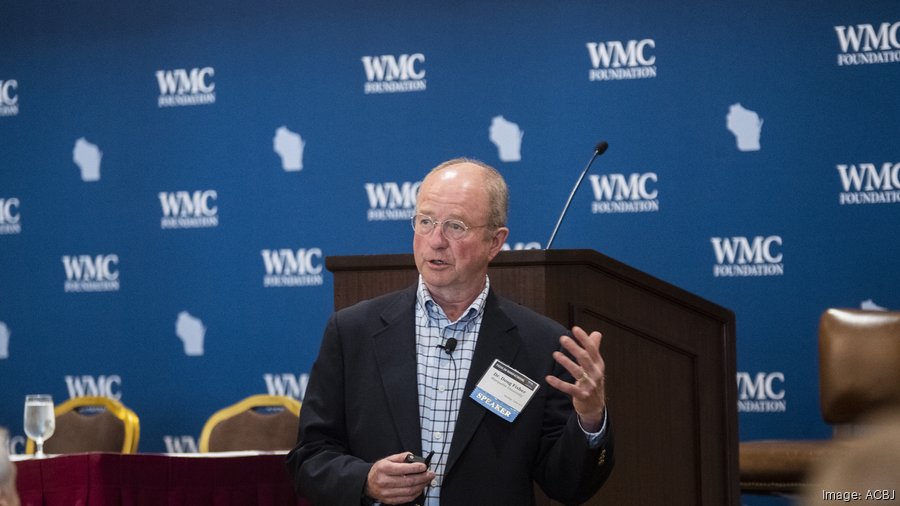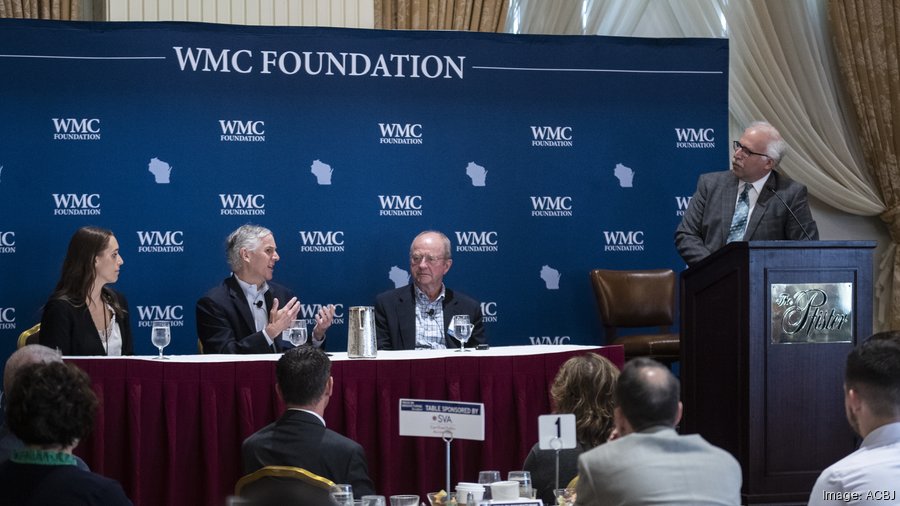A recession is coming for the American economy, but manufacturers may at least initially avoid the brunt of the impact.
That was the consensus of panelists at a Wisconsin Manufacturers & Commerce breakfast and from the organization’s president and CEO Kurt Bauer. The Milwaukee Business Journal was a co-sponsor of the event.
The other takeaway from the event May 20 at The Pfister Hotel in downtown Milwaukee was that supply-chain challenges will continue into 2023 and beyond.

While not all economists or business executives agree on the certainty of a recession, WMC members are bracing for one, Bauer said in an interview after the panel discussion.
“I think the odds of us going into a recession in the near term — 12 months — is pretty high because the Fed has never been able to address inflation at this level without inducing some sort of recession to cool things down,” Bauer said. “Whether it’s mild, whether it’s severe — I don’t know.”

Wisconsin manufacturing executives aren’t worried about a recession at least through the end of this year because they’ve amassed a backlog of orders they’re still striving to fill, Bauer said. Manufacturers continue to struggle with shortages in their supply-chains and workforces that have slowed production, he said.
Panelist John Mellowes, CEO of Mequon-based Charter Manufacturing Co., believes manufacturers in certain segments will perform better than other economic sectors despite “some form of a recession” hitting the country. Those sectors that are well-positioned due to strong demand include automotive, oil and gas and on-shoring-related enterprises, he said.
Panelist Carolyn Salzer, head of logistics and industrial research in the Americas for Cushman & Wakefield, said her company’s experts predict “some form of a mild recession in 2023.” However, she said gross domestic product growth will remain fairly strong at 2%.
Panelist Doug Fisher, a supply-chain expert and associate professor emeritus at Marquette University, also sees continued economic growth — and a recession.
“The big thing is hard landing or smooth landing?” he said. “If it’s a hard landing, all bets are off.”

Fisher also gave a keynote speech on the supply chain during which he warned that there will be no "return to normal" or quick fixes.
Near-term concerns include the Covid-19 shutdowns in Shanghai and other Chinese cities. For now, it’s easing pressure on American ports but when those cities reopen, there will be a tsunami of shipments arriving, Fisher said.
Many American manufacturers and other businesses are seeking sources of supplies closer to home or at least in countries beyond China. However, Fisher said so-called re-shoring and de-globalization are long-term propositions.
“It’s going to be a decades-long effort,” he said.
In short, the supply-chain problems aren’t over, Fisher said.
Adding to uncertainty is the impact of the war in Ukraine, panelists said. For example, Russia and Ukraine are major suppliers of pig iron used in American steel mills as well as suppliers of palladium and neon.
Mellowes, whose businesses include Charter Steel, said the price of steel was decreasing off pandemic highs until the war started and then prices increased even more. They’ve started to cool in recent weeks, he said.
